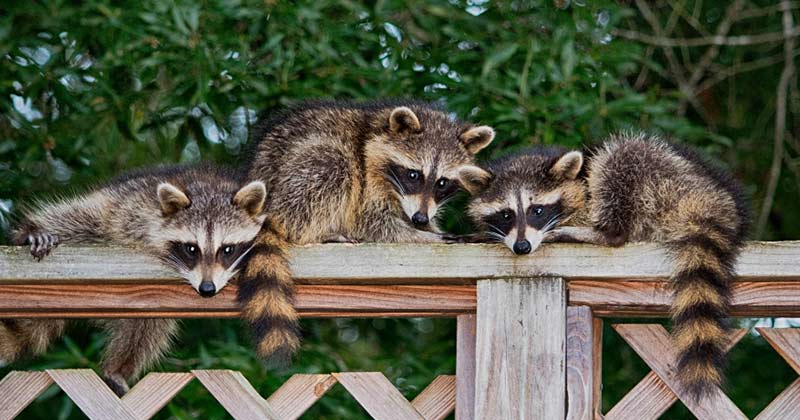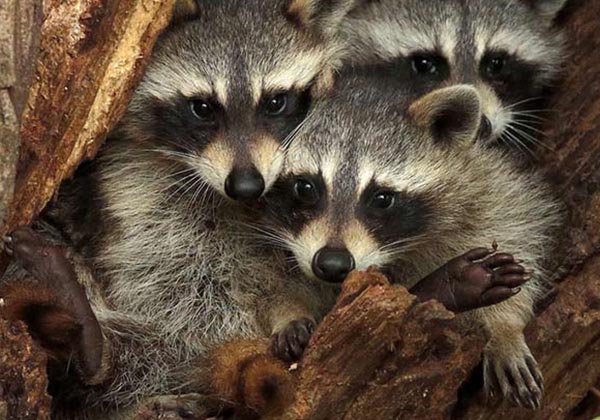Raccoon females are violently protective of their young. The young are also blind and immobile for the first four to six weeks of their life and continue to be essentially defenceless until about 1 year old. This means caring for it will take a long time. It is very unlikely that you will find an immobile baby on your property. If you have found a baby raccoon on your property it is likely the mother is going to come back. If it is the summer you can leave the baby and check on it every ten or so minutes but if you feel the mother is not coming back then you can also call the humane society. If it is cold and you think the mother will come back you can put the baby in a box with rags or small towels to keep it warm, you can feed it water with a baby bottle and if it is not picked back up by its mother you will have to call a wildlife reserve or the humane society. Taking care of a baby raccoon in the long term is more complicated and needs to be handled by someone with training. If you have a baby raccoon that has not been taken by its mother then you cannot keep it as a pet, that is against the law in Ontario. You can however take care of it on your own if you live somewhere where that is allowed. You will need a type of formula called KMR, it is very high in fat, protein and caloric content. The milk can be purchased from actual wildlife reserves or on the internet. The formula comes powdered and must be mixed. If it is not thoroughly mixed it will be harder to digest. As the raccoon ages past the four to six-week mark, they will begin being able to eat solid food. Raccoons are carnivores by nature but can eat grains and vegetables and fruit as well. Once the raccoon reaches two months it should be able to feed itself and will only need water and normal food which can be simple pet food. Cat food and dog food are both effective and because raccoon has such a powerful stomach they can essentially eat anything.

That being said, you should not be taking care of a baby raccoon unless you’re trained as a wildlife rescuer or expert. If you find a baby you can keep it alive but you really should get to a sanctuary or reserve. The people there will be able to bring it together with other raccoons and they will do more caring for the baby than the humans will. While it may seem fun to have a raccoon there is also a lot to take into consideration. They will need shots to resolve issues like the roundworm parasite all raccoons have, otherwise, the feces could kill you. Specialist rescuers are much better trained to handle this situation, it’s best to hand it off to them.

